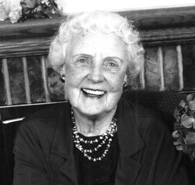La Leche League
by Siegfried Othmer | July 2nd, 2008
 The death of Edwina Froehlich on June 8 brought the La Leche League back into the news. Froehlich had been one of the founders of the group, and the organization was run out of her home for years. It occurred to me on reading her obituary that this group’s experience had some elements in common with ours in biofeedback, and their success may even have laid the groundwork for our success decades later.
The death of Edwina Froehlich on June 8 brought the La Leche League back into the news. Froehlich had been one of the founders of the group, and the organization was run out of her home for years. It occurred to me on reading her obituary that this group’s experience had some elements in common with ours in biofeedback, and their success may even have laid the groundwork for our success decades later.
The climate of the day, back in 1956, was of an onrush of modernism that needed to be embraced. Doctors were among the many who were pointing the way to the future. It was not difficult to pitch infant formula as part of that liberating modernism, with the suggestion that it was even superior to mother’s milk. Those who resisted these trends were easily dismissed as old-fashioned and radical to boot. It was not a radical age, despite the fact that radical change was happening.
There’s a parallelism here to our competition with the modernist trend of psychopharmacology with an approach that people tend to associate with the past. “Biofeedback. Didn’t that die out in the seventies?” Despite the fact that we use sophisticated technology, we still have to overcome the suspicion that we are somehow being unscientific in our project. The La Leche League didn’t even have high technology in their corner. Nor did they have reams of published research to point to, or estimable university-based authorities giving them legitimacy. And yet they succeeded.
They succeeded one mother at a time, just as we are doing now. These pioneers turned out to be right in their suspicion that science, in its reductionist propensity, had not considered all of the issues involved in breast-feeding. They had not considered all of the biological factors involved in breast milk (nutritional factors and immune-system boosters), and they had certainly not considered the relationship and bonding issues between mother and infant. In that regard, the La Leche League was even an inconvenience for the emerging feminist movement. This was a time for women to be talking about detachment, not attachment.
The success of the La Leche League eventually led to major changes in how childbirth was handled within the medical regime, although not in time for our family. And it even laid the groundwork for the natural foods movement and the concern with toxins in our environment. Finally, it prepared the ground for our more natural and organic approach to mental health and well-being.
Share your thoughts in the comments section below.





